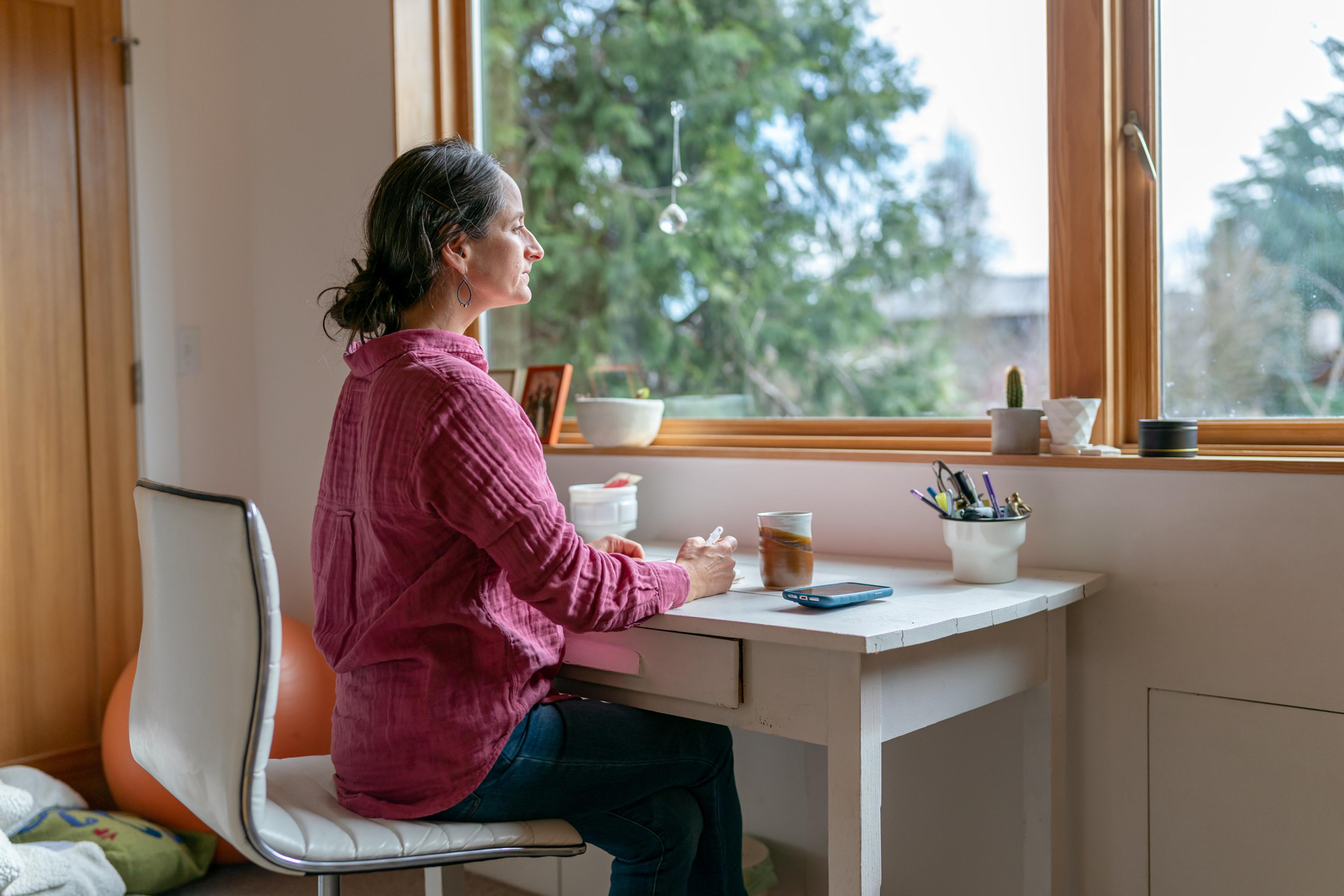The Benefits of Boredom

Lindsay Knake
| 3 min read

When you’re in line at the grocery store or waiting for an appointment, you may feel an itch to grab your phone. You may even have it in your hand before you’re consciously aware of what you’re doing.
Games and social media apps, music streaming services and an endless supply of podcasts make it easy to avoid being bored. But do you ever have good ideas for a work or home project when you are in the shower or on a walk?
Boredom isn’t inherently good or bad, but it can have benefits.
How does boredom affect the brain?
Boredom is when the brain struggles to fill time or a way to entertain itself, according to the Mayo Clinic. And it’s common; more than 60% of adults in the United States report feeling bored at least once a week.
Even if boredom doesn’t feel good, it’s also important to give your brain time to rest from external stimulation. Using your brain for a focused task takes a lot of energy. After, you may feel fatigued even if you were not physically active and your brain returns to the default state. This resting state is important for your brain to restore energy after challenging tasks.
While in the default state, the brain reflects on experiences, consolidates memories and daydreams about the present or future, according to the Mayo Clinic. Letting your mind wander in the resting state can also result in increased creativity. When you give your brain a break from productivity and intense focus, you may also become aware of the solutions it’s been working on in the background – that’s how you get ideas in the shower.
The same goes for kids. Having every moment organized or having access to games that direct their play or attention doesn’t allow children to access their own creativity and learn to cope with uncomfortable but benign experiences. Make believe and unstructured playtime allow kids to develop their imaginations, according to Harvard Medical School.
Some cultures have embraced the concept of boredom. The Dutch concept Niksen means “the art of doing nothing.” It creates time for people to be idle and engage in unproductive activities without feeling rushed or guilty. It’s seen as a way to counteract busyness and to recharge.
Being bored is different than mindfulness, which is focusing on the breath or the present moment. Removing the inputs to your brain and giving yourself time to daydream, wonder and revisit old memories. Daydreaming may also help you understand places you’d like to go or experiences you’d like to have.
How to get the benefits of boredom
While you don’t want to be bored all the time, giving your brain a rest can help reduce stress and improve your focus. The best parts of boredom are that you can enjoy it in small doses, and it’s easier than meditation. Give yourself 10 to 15 minutes to try:
- Standing in line or waiting for an appointment without using your phone.
- Taking a walk without music, podcasts or a phone.
- Looking out the window in silence.
- Doing simple or tedious tasks with no other stimulation.
- Taking a shower without any music.
- Lying on the ground and doing nothing, also known as floor time.
- Taking an adult time out.
Image: Getty Images
Related:





